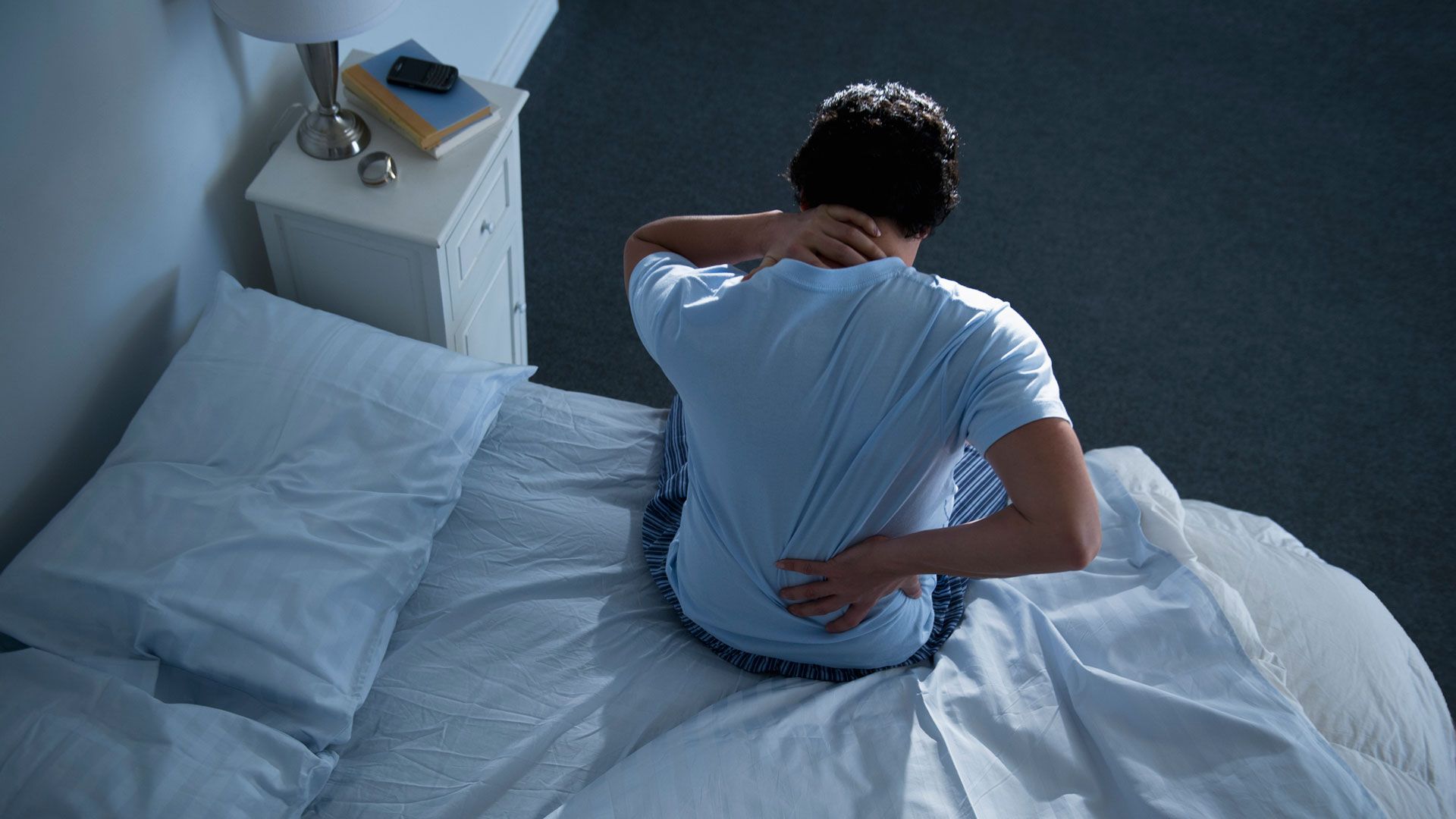- 12 February 2024
- 190
Does Pain Feel Worse at Night? Explore Nighttime Discomfort

Understanding Nocturnal Pain
Nocturnal pain, or pain experienced during the night, is a common phenomenon that affects individuals across various age groups and demographics. While the intensity and frequency of nighttime discomfort may vary from person to person, many individuals report feeling that their pain worsens at night. Understanding the factors contributing to nocturnal pain can provide valuable insights into managing and alleviating this discomfort effectively.
The Physiology of Pain Perception
To comprehend why pain may feel worse at night, it is essential to delve into the physiology of pain perception. Pain sensations are transmitted through specialized nerve fibers known as nociceptors, which are sensitive to various stimuli, including mechanical pressure, temperature extremes, and chemical irritants. These nociceptors send signals to the brain, where they are processed and interpreted as pain. Throughout the day, our bodies are engaged in various activities, which can serve as distractions from pain perception. However, as nighttime approaches and activities wind down, individuals may become more attuned to their bodily sensations, including any discomfort or pain they may be experiencing. Additionally, changes in body posture during sleep can exacerbate existing pain conditions, leading to increased nighttime discomfort.

The Impact of Circadian Rhythms
Our bodies operate on a circadian rhythm, an internal clock that regulates various physiological processes, including sleep-wake cycles. Research suggests that certain pain conditions, such as arthritis and fibromyalgia, may exhibit diurnal variations, meaning that symptoms fluctuate throughout the day in response to the body’s circadian rhythm. For individuals experiencing conditions characterized by inflammation or nerve sensitivity, such as arthritis or neuropathy, pain levels may peak during the night when inflammation tends to be at its highest. Moreover, disruptions to the circadian rhythm, such as shift work or irregular sleep patterns, can exacerbate nighttime discomfort and lead to poor sleep quality, further exacerbating pain perception.
Psychological Factors and Nighttime Discomfort
In addition to physiological factors, psychological aspects also play a crucial role in nighttime discomfort. Anxiety, stress, and depression can amplify perceptions of pain and contribute to sleep disturbances, creating a vicious cycle wherein increased pain leads to poor sleep, which, in turn, exacerbates pain levels. Furthermore, nighttime can be a time of quiet reflection, where individuals may ruminate on their worries and concerns, amplifying negative emotions and, consequently, pain perception. Addressing underlying psychological factors through relaxation techniques, cognitive-behavioral therapy, and stress management strategies can help mitigate nighttime discomfort and improve overall well-being.

Strategies for Managing Nocturnal Pain
Managing nighttime pain requires a multifaceted approach that addresses both the physical and psychological aspects of discomfort. Here are some strategies to consider:
1. Establish a Relaxing Bedtime Routine
Creating a calming bedtime routine can signal to the body that it is time to unwind and prepare for sleep. This may involve activities such as taking a warm bath, practicing relaxation exercises, or engaging in gentle stretching to alleviate tension in the muscles.
2. Optimize Sleep Environment
Ensure that your sleep environment is conducive to restful sleep. This includes keeping the bedroom cool, dark, and quiet, investing in a comfortable mattress and pillows, and minimizing exposure to screens and stimulating activities before bedtime.
3. Practice Pain Management Techniques
Explore various pain management techniques, such as heat therapy, cold therapy, massage, or over-the-counter pain relievers, to alleviate nighttime discomfort. Consult with a healthcare professional to determine the most appropriate approach for your specific condition.
4. Address Underlying Psychological Factors
Seek support from mental health professionals to address any underlying psychological factors contributing to nighttime discomfort, such as anxiety, depression, or trauma. Cognitive-behavioral therapy (CBT) and mindfulness-based interventions can be particularly beneficial in managing pain-related distress. Explore More About (Childs Health)
5. Maintain a Healthy Lifestyle
Adopting a healthy lifestyle that includes regular exercise, balanced nutrition, and stress management practices can help reduce inflammation, improve sleep quality, and enhance overall well-being, thereby reducing nighttime discomfort.
Conclusion
Nocturnal pain can significantly impact an individual’s quality of life, affecting both physical comfort and psychological well-being. By understanding the underlying factors contributing to nighttime discomfort and implementing targeted strategies for management and relief, individuals can effectively alleviate pain and improve sleep quality. By prioritizing self-care and seeking support from healthcare professionals, individuals can empower themselves to manage nighttime pain and enjoy restful, rejuvenating sleep.

